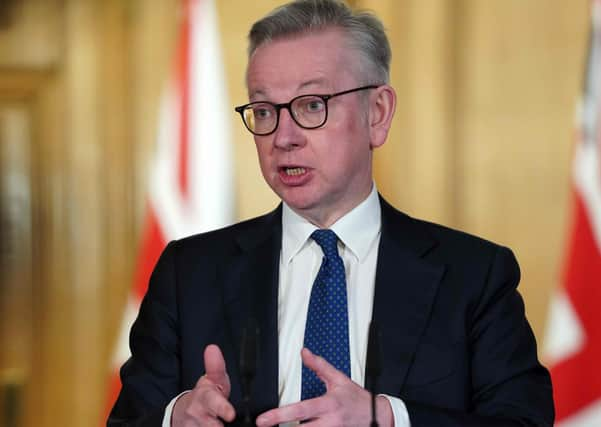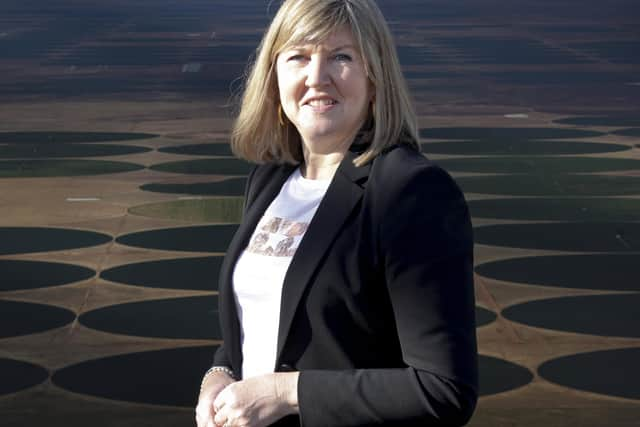Coronavirus will hit people who live in poverty hardest – Alison Johnstone


A world leader falling seriously ill was a reminder of how we are all vulnerable in this pandemic, but I am not convinced that it is evidence that the virus is a “great leveller”, that it impacts everyone equally.
Cabinet Office Minister Michael Gove (pictured) said that “the fact that both the prime minister and the health secretary have contracted the virus is a reminder that the virus does not discriminate”.
Advertisement
Hide AdAdvertisement
Hide AdHowever, the underlying health conditions we know that put people at greater risk of developing complications or dying from a Covid-19 infection are far more common in our more deprived communities. It is the same people who are already disadvantaged by insecure work and a poor welfare system, those who depend on our care services, who are more likely to be vulnerable.


Amongst many other conditions, people with the lung disease chronic obstructive pulmonary disease (COPD) are thought to be particularly at risk. And the incidence of COPD amongst the most deprived communities is four times that of the least deprived.
And, as BBC journalist Emily Maitlis powerfully put it on Newsnight last week, we are not equally exposed to the virus.
Those in jobs that can be done from home easily are much less exposed than our supermarket workers, social care providers, hospital cleaners, nurses, healthcare assistants and many other underpaid key workers who have no choice but to do their jobs in ways that put them at greater risk, and sometimes not always with the personal protective equipment they need.
Advertisement
Hide AdAdvertisement
Hide AdThese are the people keeping us safe, keeping us healthy and keeping us fed.
Even where people do not become ill, the lockdown will be tougher for those who are already disadvantaged. It’s hard enough only being allowed out of our homes for brief periods, but 12.5 per cent of Scots live in homes not considered “healthy, safe or secure”, according to the Scottish Housing Condition Survey.
Many lack easy access to green space, with the poorest fifth of Edinburgh residents without access to a private or shared garden. Home schooling will be much more difficult for the almost one-third of households with incomes below £10,000 that don’t have internet access.
This is all before the full extent of the economic impact of the crisis becomes clear.
Advertisement
Hide AdAdvertisement
Hide AdNew figures released last month show that, even before the crisis, around a quarter of Scots children experienced poverty. The figure is closer to 30 per cent and even 40 per cent in some areas of Edinburgh. As outlined by the Child Poverty Action Group recently, we must move mountains to ensure those figures do not rise even higher.
The health and economic crises brought by the virus throw into sharp relief how unequal our society is. It makes even more urgent the need to explore together as a city and as a country how we build a fairer Edinburgh and a more equal Scotland.
Alison Johnstone is a Green MSP for Lothian region.